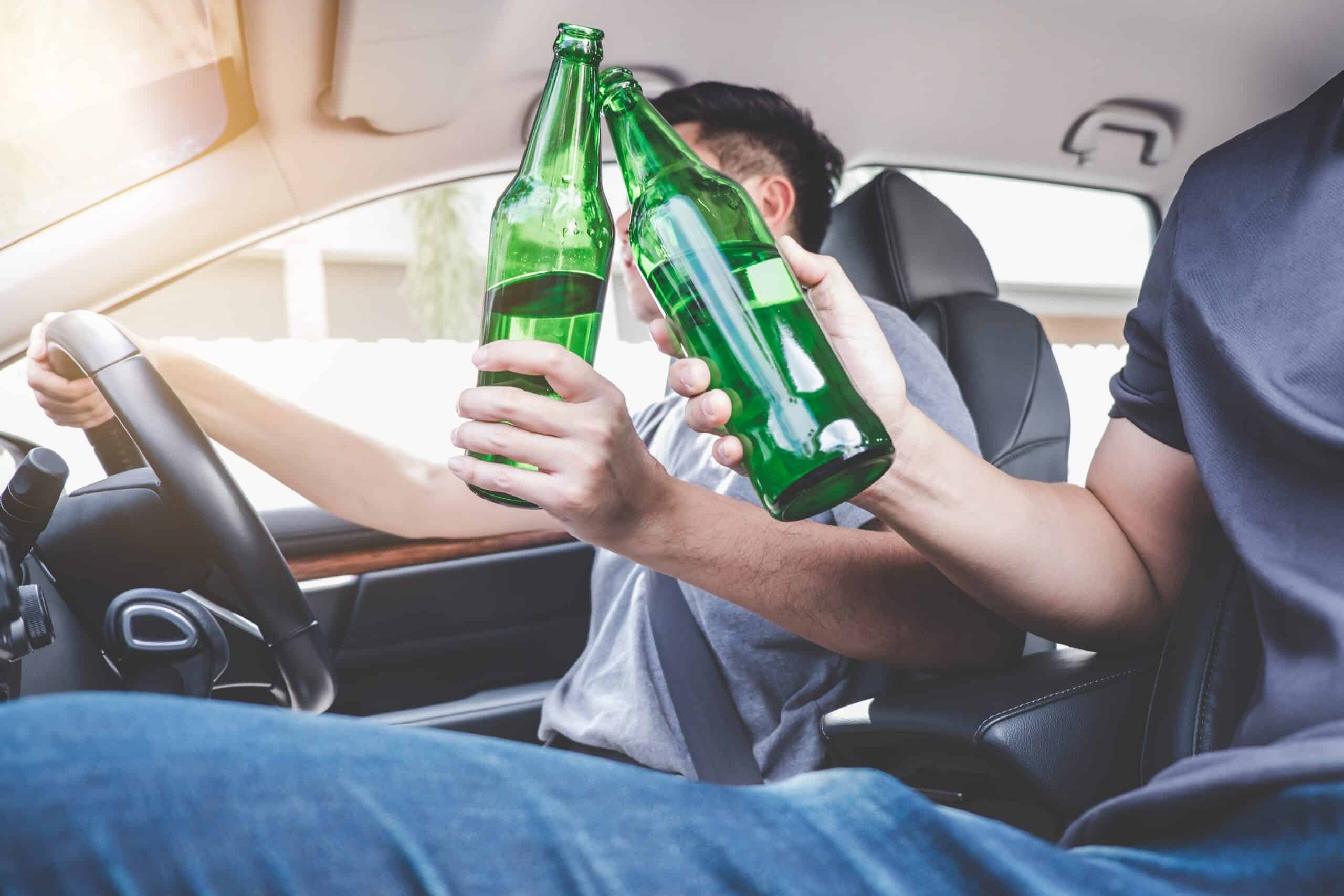What Is Considered a DUI in Louisiana?
Different states use different terms for a DUI (Driving under the influence). In Louisiana, it is officially called DWI (Driving while intoxicated), but it means much the same thing, and the terms DUI and DWI are both used in regular speech. One key difference in Louisiana compared to other states is that you can be arrested or charged with a DUI for driving under the influence of entirely legal prescription drugs.
The Louisiana Revised Statutes Tit. 14, § 98 covers operating a vehicle while intoxicated as follows:
“The crime of operating a vehicle while intoxicated is the operating of any motor vehicle, aircraft, watercraft, vessel, or other means of conveyance when any of the following conditions exist:
“(a) The operator is under the influence of alcoholic beverages.
“(b) The operator’s blood alcohol concentration is 0.08 percent…
“(c) The operator is under the influence of any controlled dangerous substance…
“(d)(i) The operator is under the influence of a combination of alcohol and one or more drugs that are not controlled dangerous substances and that are legally obtainable with or without a prescription. …
“(e)(i) The operator is under the influence of one or more drugs that are not controlled dangerous substances and that are legally obtainable with or without a prescription.”
In simple terms, Louisiana law enforcement can arrest you on DUI charges for:
- Appearing intoxicated (by alcohol or illicit drug use)
- Having a blood alcohol concentration of 0.08%
- Being under the influence of drugs (legal or not) combined with alcohol
- Being impaired by prescription or OTC drugs
What Are the Two Types of DUI and Which Applies to Prescription Drug Use?
An arresting officer can charge a vehicle operator with DUI under two conditions:
- “Per se” DUI: This type of DUI depends only on the driver’s blood alcohol concentration (BAC) being 0.08% or higher upon breath or chemical testing. That’s 0.02% if you are under 21. The legal term “per se” comes from Latin and means “by itself.” This charge does not require the driver to act impaired additionally but is considered as driving while intoxicated in itself.
- Impairment DUI: This is when the officer believes, usually by conducting field sobriety tests, that the vehicle operator is intoxicated and unable to drive safely.
Due to a lack of field chemical tests for the wide variety of commonly used and prescribed drugs, prescription drugs usually fall under an impairment DUI charge.
How Can Prescription Drugs Cause Impairment?
All drugs, illicit or legal, have side effects. Usually, these are indicated on warning labels on the bottle, box, or direction sheet. People react differently to chemical substances they consume; some are more adversely affected than others. Situations where you may experience new side effects include:
- Starting or taking a new medication.
- Changing or increasing your dosage.
- Suddenly stopping or changing medications.
Even short-term-use, over-the-counter drugs like Advil and Tylenol have warnings against acute effects like dizziness, blurry vision, and heart attacks, which can make driving unsafe. Louisiana’s strict “no tolerance” law expects drivers to heed these warnings and act accordingly.
What Are Some Possible Defenses For Prescription Drug DUI in Louisiana?
If you have been charged with a DUI offense that involves prescription drugs, a skilled DUI defense attorney can help you draft the best defense strategy based on your unique circumstances. Here are some possibilities that are worth considering:
- There was no manufacturer warning against combining your medication with alcohol. If you were charged based on impairment (not a BAC test) and were taking legally prescribed medication according to the doctor’s direction, this could be a possible defense.
- You did not consume quantities of the drug that exceeded your prescription. If you can prove that you were only following what the FDA or your doctor has certified as “safe and effective,” you may be able to prove you were not guilty of the DUI charge.
- You were not truly impaired. If the arresting officer noted observations in his report that he or she assumed were signs of impairment, you may be able to argue these observations are due to other factors, such as a medical condition. A lawyer may need to assist you in obtaining expert testimony or medical records to support your claim.
- The arresting officer did not follow standard procedure. If the administration of chemical testing, field sobriety tests, or even the arrest were carried out unlawfully or incorrectly, this could weaken the prosecution’s case against you.
What Legal Considerations Exist Regarding a Prescription Drug DUI?
Starting when you are pulled over, there are specific legal points you should be aware of as it relates to a prescription drug DUI.
Chemical Test Refusals
All Louisiana driver’s licenses imply the driver’s consent to undergo a breath, blood, or urine test at the request of a law enforcement officer with probable cause. Refusal to undergo testing will result in immediate seizure of your license and a one-year suspension. If this is the second time you refused testing in the last 10 years, your license will be suspended for 2 years. A third refusal may bring criminal charges.
Chemical Test Failures
If you take the requested test and fail, you will be suspended from driving for 90 days. On your first test failure, it is possible to get a hardship license after 30 days, but a second test failure within five years will result in a year-long suspension without recourse.
Louisiana DUI Penalties
First Offense:
- Up to 6 months in jail
- Up to $1,000 in fines
- A judge can order an ignition interlock device (IID*) during probation
Second Offense:
- Up to 6 months in jail
- Up to $1,000 in fines
- Mandatory IID installation for 6 months and during probation
Third Offense:
- Up to 5 years in jail
- Up to $2,000 in fines
- Mandatory IID during probation and subsequent treatment
* Once installed, an ignition interlock device prevents a driver from starting their vehicle until they pass a breath test using the device.
When Experience Matters, Call Whiddon Criminal Defense
The consequences of a DUI conviction can be severe, especially considering you may have only been taking medication. At Whiddon Criminal Defense, we provide strong advocacy on your behalf so you can get your life back. We have years of experience in handling DUI and DWI cases and can fight for you to see the best possible outcome in your case. Contact us at 318-594-3592 to schedule a free consultation.


 Call Us Now
Call Us Now Email Us Now
Email Us Now


